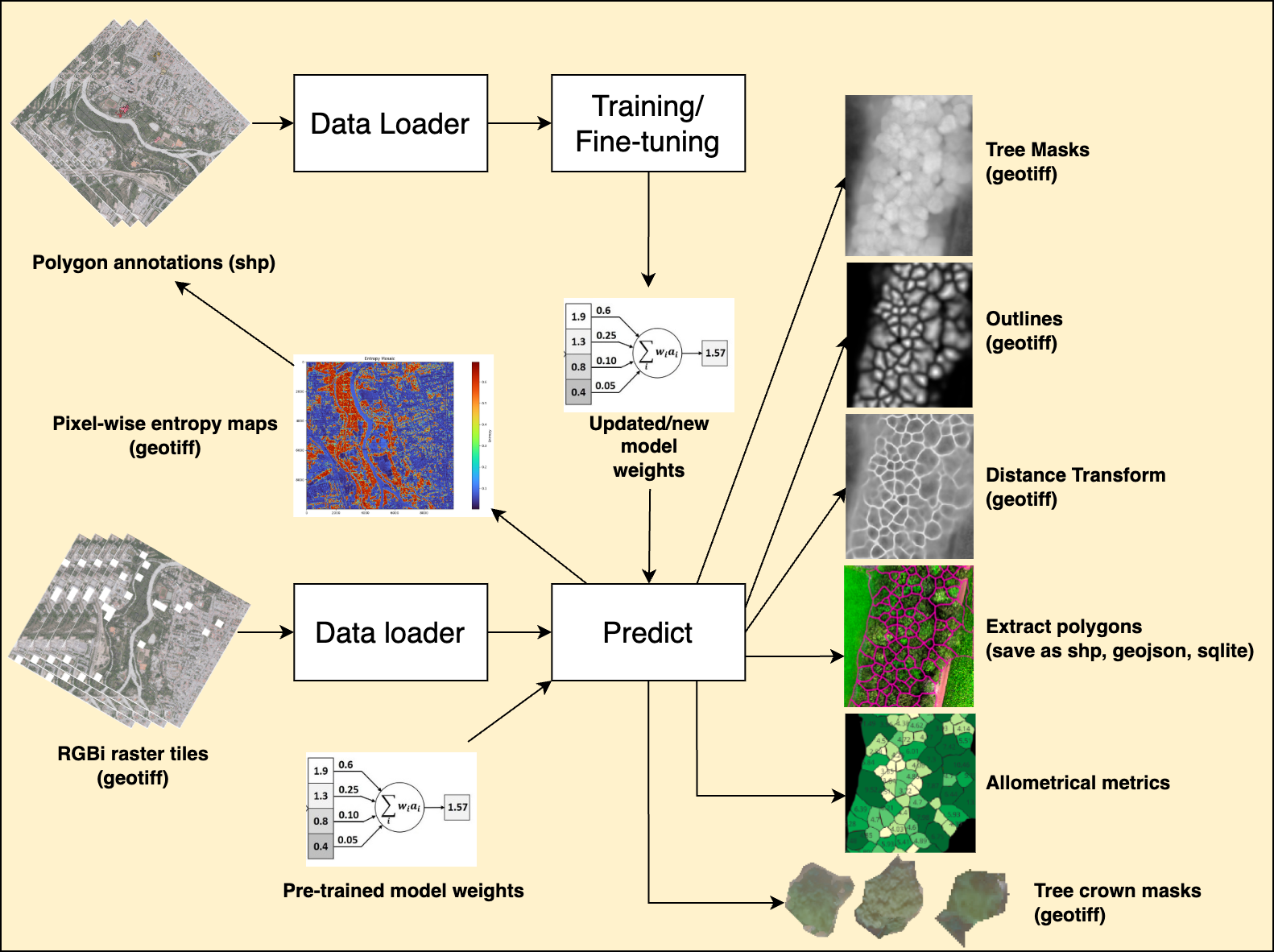DeepTrees Practitioners Workshop: Tree Crown Segmentation and Analysis in Remote Sensing Imagery with PyTorch
Hall 1 C
Leipziger KUBUS, Permoserstraße 15, 04318 Leipzig
Summary
The DeepTrees Practitioners Workshop 2025 places the DeepTrees Python library (https://deeptrees.de) at the heart of our efforts to democratize tree crown segmentation and analysis. With over 6,500 downloads on PyPI, DeepTrees offers an end-to-end, modular PyTorch framework for semantic and instance segmentation of tree crowns, integrated with tools for ecological trait extraction and active learning.  This workshop invites researchers, environmental data scientists, and remote sensing practitioners to deepen their expertise using this open-source tool. Participants will engage with the full workflow — from dataset preparation and annotation, to model training, evaluation, and trait extraction — while also hearing flash updates from the open-source community about new features, community contributions, and evolving use cases. Through hands-on sessions and collaborative dialogue, we aim to empower attendees to adopt, extend, and contribute to DeepTrees, fostering a vibrant ecosystem where practitioners, researchers, and data custodians converge to accelerate scalable, reproducible tree monitoring across landscapes.

Who Should Attend
- Machine learning practitioners and data scientists in environmental domains
- Researchers in remote sensing, forestry, and ecology
- GIS analysts and urban planners using high-resolution imagery
- Students and developers interested in PyTorch and spatial AI
Requirements
- Some experience with Python programming.
- Understanding of basic machine learining concepts.
- (OPTIONAL) Some knowledge of neural networks.
Participants must bring a laptop for participation in the hands-on sessions.
